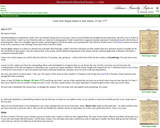
This resource is a primary source of a letter from Abigail Smith to John Adams.
- Subject:
- Social Studies
- Material Type:
- Demonstration
- Provider:
- Massachusetts Historical Society
- Date Added:
- 05/23/2017

This resource is a primary source of a letter from Abigail Smith to John Adams.
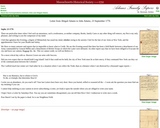
This resource is a primary source of a letter from Abigail Smith to John Adams.
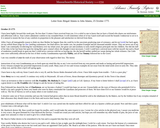
This resource is a primary source of a letter from Abigail Smith to John Adams.
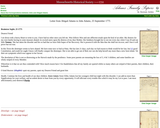
This resource is a primary source of a letter from Abigail Smith to John Adams.
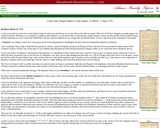
This resource is a primary source of a letter from Abigail Smith to John Adams.
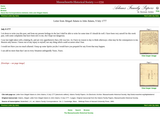
This resource is a primary source of a letter from Abigail Smith to John Adams.
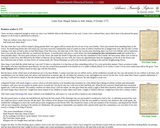
This resource is a primary source of a letter from Abigail Smith to John Adams.
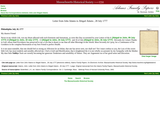
This resource is a primary source of a letter from John Adams to Abigail Smith.
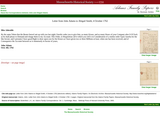
This resource is a primary source of a letter from John Adams to Abigail Smith.
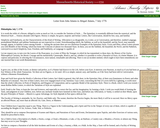
This resource is a primary source of a letter from John Adams to Abigail Smith.

Students will study a letter from Annie Davis, a woman who was enslaved in Maryland and wrote a letter to President Abraham Lincoln during the Civil War to find out if "we are free." Students will examine three documents: a proposed amendment from 1861, the Emancipation Proclaimation, and the Thirteenth Amendment to the United States Constitution. Students will analyze these documents to compare the changing roles of minorities on American society.
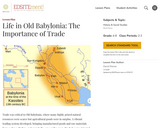
Trade was critical to Old Babylonia, where many highly prized natural resources were scarce but agricultural goods were in surplus. A vibrant trading system developed, bringing manufactured goods and raw materials from as far as Turkey, and even India, 1500 miles away. Trade became integral to the economy and the culture. In this lesson, students explore the trade industry in Old Babylonia and its far-flung influence.
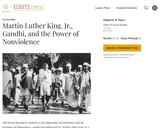
This lesson introduces students to the philosophy of nonviolence and the teachings of Mohandas K. Gandhi that influenced Dr. Martin Luther King, Jr.'s views. After considering the political impact of this philosophy, students explore its relevance to personal life and contemporary society.
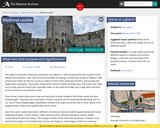
This resource discusses the purpose and significance of castles during medieval times, following their introduction in 1066.

In this interactive, students explore an archaeological dig of the remains of a Neolithic town, what has been found there, and what this tells us about history.
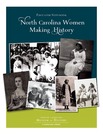
This Educator Notebook provides information on Women’s History in North Carolina for teachers to use as a resource, either as stand-alone units, or integrated into standard curriculum. Included is research from museum curators and educators, and articles published in the Tar Heel Junior Historian magazine which are written for students in grades 4-12. Lesson plans and suggested activities complement many of the topics. Adaptable to multiple ages, they meet curriculum goals set forth by the NC Department of Public Instruction and connect to classes in national and world history, geography, economics, and the arts, and can be part of any unit of social studies. This resource's link takes you to a very short form that gives you free downloadable access to the complete PDF book.

In this lesson, students gain an understanding of North Carolina Native Americans, their way of life and their culture by assuming the role of an archeologist and recreating an artifact that would have been used by Native populations in the pre-colonial period.

Students examine two timelines, one outlining the observation of the solar system in the West and the other the exploration of this system since 1957. Students will comment on the main reference points and summarize the most important milestones in space exploration in the second half of the 20th century. Students will answer a series of questions.

In this lesson, students analyze primary and secondary historical documents that represent events leading up to the publication of the Declaration of Independence and place them in chronological order.

This course was created by the Rethink Education Content Development Team. This course is aligned to the NC Standards for 6th Grade Social Studies.